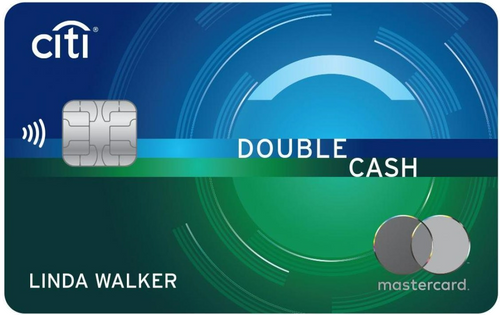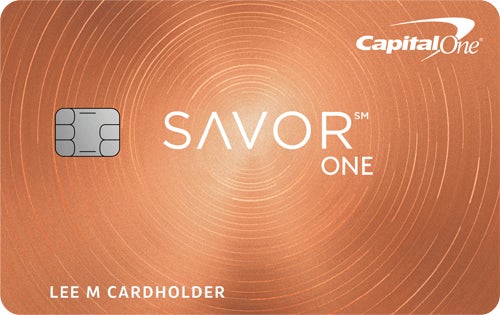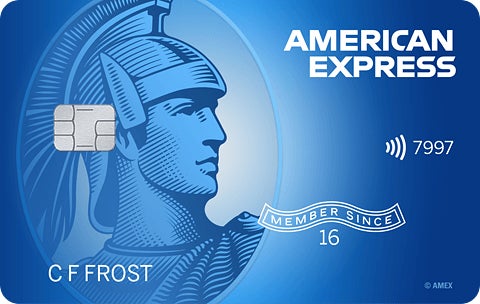Citi is an advertising partner
The Citi Double Cash® Card and the Capital One SavorOne Cash Rewards Credit Card* are competing cash-back credit cards. While the Double Cash offers a solid return on all of your spending with a universal rewards rate, in most cases it won’t hold up to the SavorOne’s higher rates on select purchases and other benefits.
The Double Cash is still a good card to consider if your spending covers a wide variety of purchase types, considering it covers purchases the SavorOne doesn’t. You could even get both cards to maximize your rewards, as neither card charges an annual fee.
Comparing reward programs
- Plus, for a limited time, earn 5% total cash back on hotel, car rentals and attractions booked on the Citi Travel℠ portal through 12/31/24.
- Earn 2% on every purchase with unlimited 1% cash back when you buy, plus an additional 1% as you pay for those purchases. To earn cash back, pay at least the minimum due on time.
- 8% Cash Back on Capital One Entertainment purchases
- 5% Cash Back on hotels and rental cars booked through Capital One Travel (terms apply)
- 3% Cash Back on dining, entertainment, popular streaming services and at grocery stores (excluding superstores like Walmart® and Target®)
- 1% Cash Back on all other purchases
The cards differ quite a bit in how they earn rewards. The Double Cash card is a flat-rate cash-back card, meaning it earns the same rewards rate for most purchases. The SavorOne earns a higher cash-back rate but only for specific purchases. That means your earnings will primarily depend on your spending habits.
The SavorOne will earn more rewards if you’re using the card for Uber, dining, entertainment, streaming and grocery stores. If you spend more in those categories than elsewhere, the SavorOne will be the more rewarding option. However, the Double Cash will earn more for all other purchases.
For example, if you were to spend $300 on grocery stores and $200 on movies and dining with the SavorOne, and then $500 in purchases outside of its bonus categories, you’d earn $20.
If you spent $1,000 with the Double Cash on those same purchases, you’d also earn $20. But if you were to spend even more on groceries or at restaurants, you’d quickly outpace the Double Cash’s rewards for the same amount of spending.
Your specific spending habits will determine which card is more rewarding. But because the SavorOne earns a higher cash-back rate, it’ll be easier to earn more rewards with -- provided you’re using it for the appropriate purchases.
Considering that neither card charges an annual fee, you could get both cards to maximize your rewards. Use the SavorOne where it earns the most and the Double Cash for everything else.
Welcome bonus
- Earn $200 cash back after you spend $1,500 on purchases in the first 6 months of account opening. This bonus offer will be fulfilled as 20,000 ThankYou® Points, which can be redeemed for $200 cash back.
- Earn a one-time $200 cash bonus after you spend $500 on purchases within the first 3 months from account opening
Both credit cards provide the same amount if you can reach their respective spending thresholds. The difference is that the SavorOne asks you to spend less but also offers a shorter window in which to do so. With the SavorOne, you’d need to spend $167 monthly to reach the bonus in time.
In comparison, you’d need to spend $250 with the Double Cash each month to reach its bonus. Considering both bonuses have the same payout, that means the SavorOne’s comes out ahead.
Introductory APR offer
- 0% intro for 18 months on Balance Transfers (then 19.24% to 29.24% variable); balance transfers must be completed within four months of account opening
- 0% intro APR on purchases and balance transfers for 15 months (then 19.99% to 29.99% variable)
Using a balance transfer with either card would complicate using it for new purchases as it could then take longer to pay down a transferred balance.
Considering these cards are meant to earn a return on new purchases, the SavorOne’s intro purchase APR is more useful than the Double Cash’s intro balance transfer APR.
However, if you did need to utilize a balance transfer to mitigate some existing credit card debt, the Double Cash would be the better choice. It provides three extra months over the SavorOne’s intro offer, giving you a larger window to pay down the balance.
Additional card perks
- Virtual credit card number
- 24-hour fraud protection
- $0 liability on unauthorized charges
- Extended warranty protection**
- Travel accident insurance**
- Capital One concierge
The SavorOne offers more card perks over the Double Cash. Cardholders gain extended warranty protection, travel accident insurance -- a relatively rare find -- and Capital One concierge for help with non-emergency tasks. In contrast, the Double Cash doesn’t offer many additional card perks.
Card fees
Winner: SavorOne
Neither credit card requires an annual fee, so they tie in this regard. However, the Double Cash card charges a foreign transaction fee while the SavorOne doesn’t. That means if you’re traveling overseas, the SavorOne would be better to use.
And while the Double Cash has a lower introductory balance transfer fee (3% of each transfer, minimum $5, so long as it’s completed within the first four months of account opening), it increases to 5% ($5 minimum) for any transfers outside of that four-month window. The SavorOne has a flat, 3% balance transfer fee for the first 15 months, or 4% at a promotional APR that Capital One may offer you at any other time (no fee for amounts transferred at the transfer APR).
How Citi Double Cash® Card and Capital One SavorOne Cash Rewards Credit Card compare to other cards
The bottom line
The SavorOne is inexpensive and rewarding, with no spending cap on rewards and a number of useful additional card perks. It doesn’t charge foreign transaction fees and offers excellent reward rates for specific travel purchases through Capital One travel, making it an OK option for a travel card if you don’t already have one.
Keep in mind, the Double Cash may still be a good choice if it fits your spending better or you need a longer time to pay off existing debt. It too offers travel rewards, but it also charges a foreign transaction fee making it a less-than-ideal choice for a substitute travel card.
FAQs
A flat-rate rewards card will earn the same rewards rate no matter the purchase, while a card with set bonus categories will earn greater rewards for specific purchases.
When you use your credit card to purchase airfare, you may be eligible for travel accident insurance. Depending on your issuer, it’ll cover you and your family against accidental death and dismemberment, up to a certain dollar amount, while traveling.
Foreign transaction fees -- which usually range from 3% to 5% -- are incurred when you make a purchase in a country outside of the US that would require a different currency. Some credit cards don’t charge foreign transaction fees.
*All information about the Capital One SavorOne Cash Rewards Credit Card has been collected independently by CNET and has not been reviewed by the issuer.
**Terms, conditions, and exclusions apply. Please refer to your Guide to Benefits for more details.
The editorial content on this page is based solely on objective, independent assessments by our writers and is not influenced by advertising or partnerships. It has not been provided or commissioned by any third party. However, we may receive compensation when you click on links to products or services offered by our partners.




